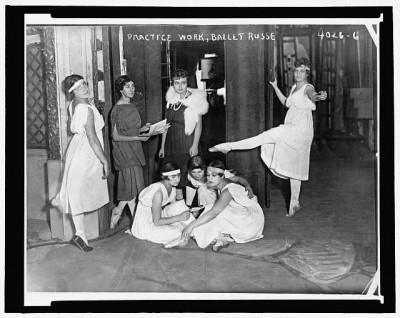What do you mean you can’t dance classical ballet?
Let’s pretend that you have just met someone new. As you are exchanging small talk, that person suddenly demands to know why you can’t:
Dance classical ballet.

Write a symphony.

Sew your own clothes.

Paint a landscape.

Build a piece of furniture.

The standards of what we should and should not do are in God’s Word. There are no passages there that tell every person that he or she must dance, write, sew, paint, or build in those ways. Therefore, we might be tempted to respond to this person’s demands with a question, like this: “What makes you think you can tell me what I should be able to do?”
I am a fan of the “3 Rs” — reading, ‘riting, and ‘rithmetic — but I am not a fan of saying that every child must advance in them at a certain time, in a certain way, in a certain sequence; and if they don’t, they are “behind” or “below grade level” or “delayed” and don’t measure up to “educational standards.”
We don’t demand that adults all do the same thing in the same way at the same time. We even accept that some skills, such as dancing classical ballet, writing symphonies, sewing our own clothes, painting landscapes, and building furniture are optional. And yet children are expected to be just like their peers in certain specific areas.
What are “educational standards”? They are arbitrary rules created by human beings.
How do we find out who is “behind” and “below grade level”? We examine children and see how they measure up to these artificial and arbitrary rules.
Last week in some second grade classroom in your hometown, a little girl felt inferior because she isn’t on the exact same timetable that educational standards say she should be on. I hope she doesn’t get discouraged and never write that symphony she could have written someday because she didn’t have someone to believe in her and be patient with her and encourage her until she is ready to the amazing things God gave her the ability to do — someday when the time is just right.
I don’t want anyone to judge you or me because we can’t dance classical ballet. I don’t want anyone to judge your child, because he is not doing x, y, or z exactly when someone else says he should.
Who are you to judge the servant of another?
To his own master he stands or falls;
and he will stand,
for the Lord is able to make him stand.
Romans 14:4

